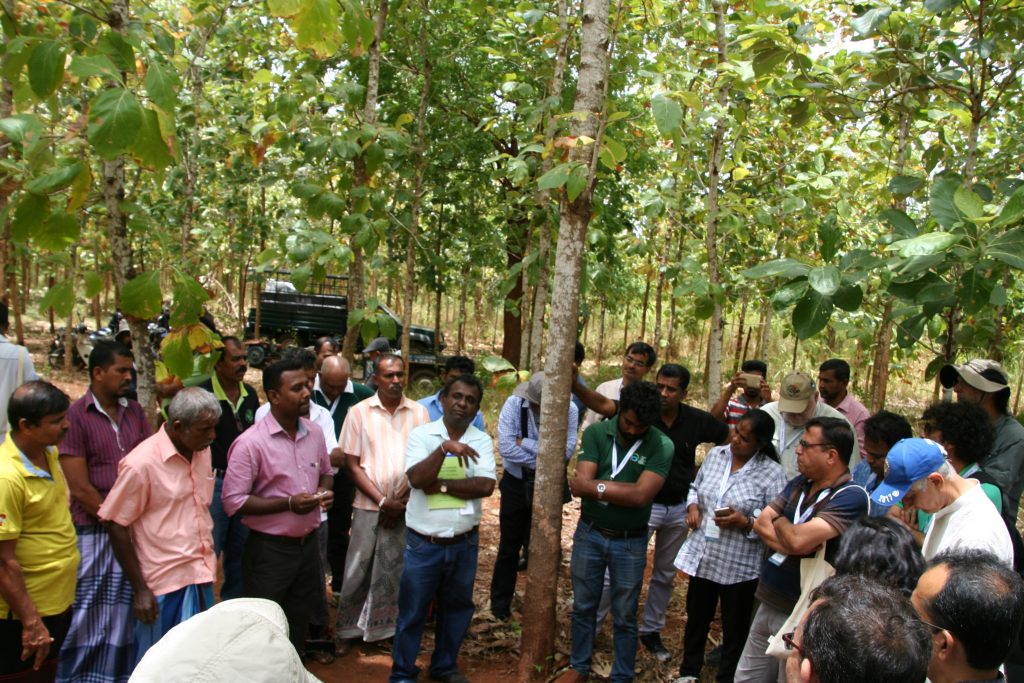Forest Landscape Restoration in South Asia – Sharing Best Practices
By Helinä Poutamo, IUFRO and IFSA

Community members and representatives of the Sri Lanka Forest Department share their experience with community-based agroforestry teak plantations using the taungya system–a form of agroforestry system in which short term crops are grown in the early years of the plantation of a woody perennials species in order to utilize the land, control weeds, reduce establishment costs, generate early income and stimulate the development of the woody perennials species. Photo © IUFRO 2018.
International Knowledge-Sharing Workshop “Best Practices for Implementing FLR in South Asia”
Chilaw, Sri Lanka, 15-17 August 2018
As follow-up to the 2017 consultations in India, the Ministry of Mahaweli Development and Environment, Sri Lanka, in cooperation with the International Union of Forest Research Organizations (IUFRO) organised a knowledge-sharing workshop on best practices in implementing forest landscape restoration (FLR) in South Asian countries. Around 60 experts contributed to the workshop, including partners from governmental and non-governmental institutions in Bangladesh, India, Nepal, Pakistan and Sri Lanka as well as international expert organisations of the Global Partnership on Forest and Landscape Restoration (GPFLR) such as FAO, IUCN, TROPENBOS and CIFOR.
Generous funding for the workshop was provided by the German Federal Ministry for the Environment, Nature Conservation and Nuclear Safety; The Global Environment Facility; National Institute of Forest Science, Republic of Korea; and the United States Forest Service.
